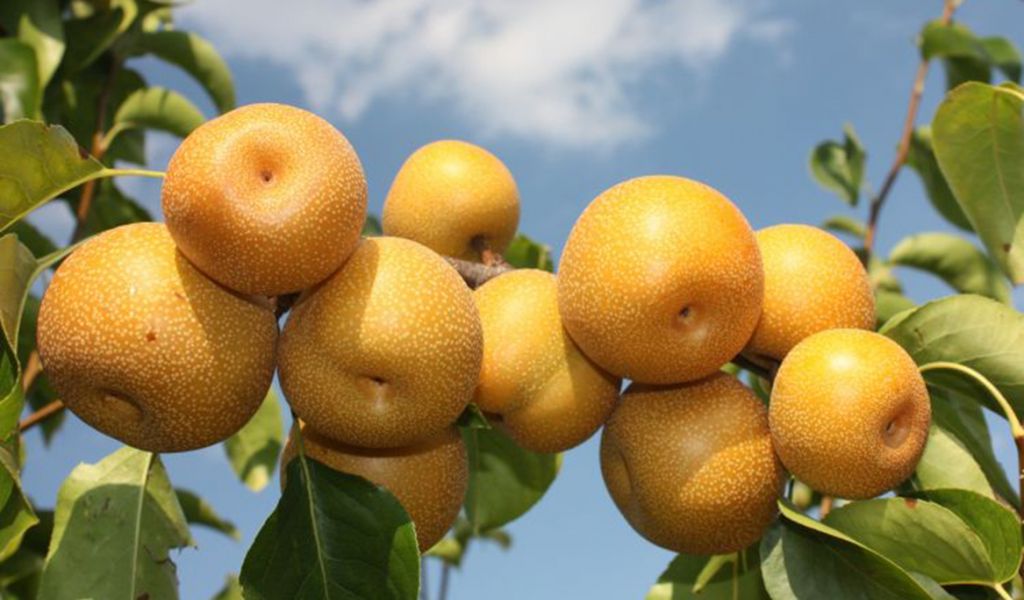ໝາກຈອງ / Asian Pear
APA 6th ed. ໝາກຈອງ / Asian Pear. (2024, February 1). Retrieved from https://www.phakhaolao.la/kb/0000779
MLA 8th ed. ໝາກຈອງ / Asian Pear. Pha Khao Lao, 1 February 2024, https://www.phakhaolao.la/kb/0000779.
Chicago 17th ed. Pha Khao Lao. 2024. "ໝາກຈອງ / Asian Pear." Published February 1, 2024. https://www.phakhaolao.la/kb/0000779.

Pyrus pyrifolia var. pyrifolia
Pyrus serotina Rehder
Eng: Asian pear, Chinese pear, Nashi pear, Korean pear, Japanese pear, Taiwan pear, Sand pear
The Asian Pear is a tree native to the western part of China. It has a pyramid shape and produces white flowers in bunches. The fruit of the Asian Pear is round and comes in yellow, green, red, orange, and brown colors. The flesh of the fruit is soft and juicy, with a slightly sweet and sour taste. It has a fragrant aroma and contains small oval-shaped seeds that are black or brown to black
Distribution in Laos
Asian Pear trees are found in the northern part of the country, especially in Xieng Khouang, Hua Phan, and Phongsaly provinces.
Availability
Asian Pear fruits and leaves can be purchased in the local markets of Xieng Khouang, Hua Phan, and Phongsaly provinces.
Advantages and Uses
Asian Pear [AE1] is a sweet fruit that can be eaten blended into juice or eaten fresh to help add freshness. The young leaves can be used in many dishes, especially in Lao vegetable soup, boiled and eaten with chili sauce, etc.
Health Benefits
The Asian Pear strengthens the immune system and helps to relieve various illnesses in the body. It assists in purifying the blood and improving kidney function and helps to balance blood sugar levels and promotes urine flow.
Sources: medthai
Asian Pear Nutrient Profile (per 100 grams)
- Energy: 42 grams
- Protein: 0.5 grams
- Carbohydrates: 10.65 grams
- Fat: 0.23 grams
- Fiber: 3.6 grams
- Calcium: 8 mg (2% of daily value)
- Phosphorus: 11 mg (2% of daily value)
- Vitamin K: 17 micrograms (2% of daily value)
- Vitamin B1: 0.009 mg (1% of daily value)
- Vitamin B2: 0.01 mg (1% of daily value)
- Vitamin B3: 0.07 mg (1% of daily value)
- Vitamin C: 3.8 mg (5% of daily value)
- Magnesium: 8 mg (2% of daily value)
- Vitamin E: 0.12 mg (1% of daily value).
